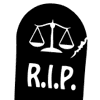 Dismissal |
Grievances may be dismissed for lack of merit at several stages. If Bar Counsel finds the complaint to be frivolous or an initial investigation fails to support the accusation, he may recommend that the Commission dismiss it. If a peer review fails to support the grievance, the panel may likewise recommend dismissal. And, while dismissals are less common at later stages, the Supreme Court of Maryland will dismiss cases which fail to establish an attorney's incapacity or professional misconduct. | |
 Dismissal With Warnings |
Even if the grievance has merit, either Bar Counsel or the Peer Review Panel may recommend that the Commission dismiss it with (1) a letter of cautionary advice or (2) with a letter of admonition. But the Commission will only approve such a recommendation if it believes that the attorney's misconduct was not sufficiently serious to warrant discipline, is not likely to be repeated, and the lawyer has not previously been sanctioned or warned. | |
 Conditional Diversion Agreement |
Absent willful or dishonest conduct, the attorney may enter into a written agreement with Bar Counsel to rectify the problem. Subject to the Commission's approval, this "Conditional Diversion Agreement" describes in detail the required remedial action. If the lawyer fulfills the terms of this Agreement, the Commission will terminate all disciplinary proceedings and the matter shall remain confidential. But if the lawyer fails to comply, is found to have misled the Commission or commits further misconduct, the Commission may revoke the Agreement, and instruct Bar Counsel to seek sanctions. | |
 Commission Reprimand |
If Bar Counsel or the Peer Review Panel conclude that the lawyer’s misconduct warrants a reprimand, they may propose that the attorney consent to such a sanction and waive further proceedings. In many cases, the attorney and Bar Counsel may negotiate over the proposed text of the reprimand before it is submitted for the Commission’s approval. If either the Commission or the attorney fail to approve it, disciplinary proceedings will resume as if no reprimand had been proposed. | |
 Court Reprimand |
Once Bar Counsel initiates court proceedings by filing a Petition for Disciplinary or Remedial Action, the Supreme Court of Maryland may reprimand the attorney for professional misconduct that does not warrant a suspension or disbarment. Unlike a commission reprimand, the Court's reprimand comes in the form of a published opinion which significantly increases the notoriety of this sanction. | |
 Suspension |
Depending on the severity of the infraction, the Supreme Court of Maryland may suspend an attorney's privilege to practice law, either for a specified period or indefinitely. Since the attorney may not practice law during this period, a suspension of any significant duration can put a law firm out of business. In appropriate cases, the Court may stay the execution of a suspension, typically by placing the lawyer on probation under conditions akin to a Conditional Diversion Agreement. | |
 Disbarment |
The equivalent of the death penalty in disciplinary proceedings, disbarments are reserved for the most serious instances of professional misconduct. The most common infractions leading to disbarment include stealing client escrow accounts, convictions for fraud and other major crimes, and multiple instances of willful misconduct that reflect adversely on an attorney's honesty, competence and fitness to practice law. | |
 Reinstatement |
It won't work for everyone. But for those who successfully petition the Supreme Court of Maryland for reinstatement to the bar, there really is life after death. |